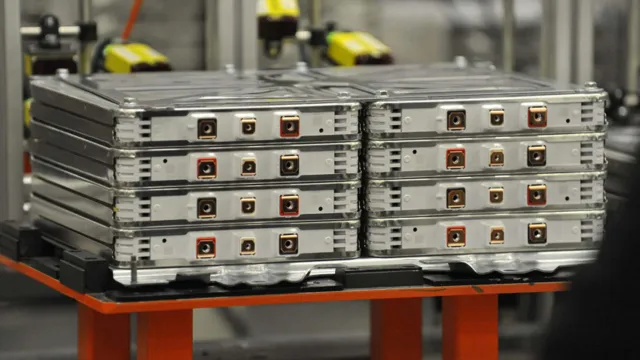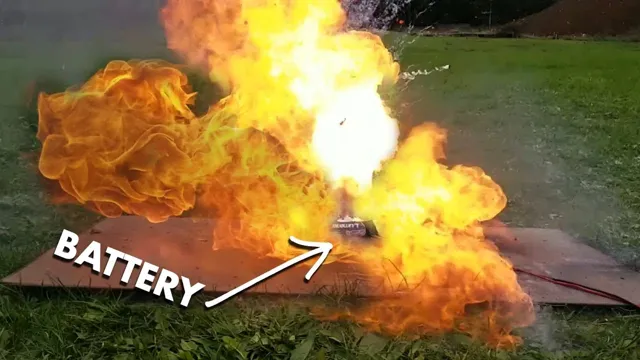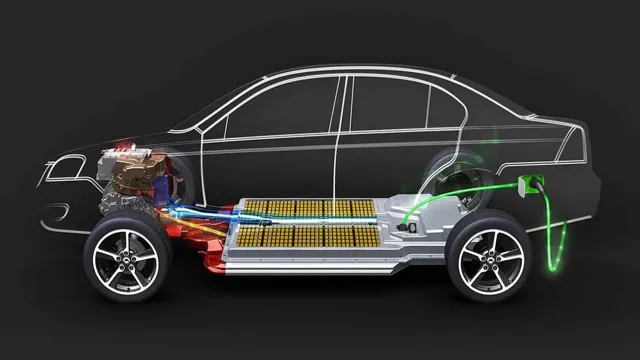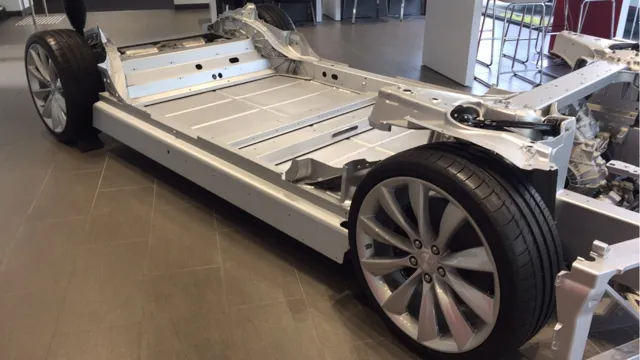Electric Car Batteries: The Truth About Its Recyclability
We all know that electric cars are the future of transportation. They are environmentally friendly and have lower operating costs in the long run. But have you ever thought about what happens to their batteries when they die? It’s an important question to ask because electric car batteries are expensive and contain valuable minerals, such as cobalt and lithium.
So, the question is whether recycling electric car batteries is a good idea or not. On the one hand, recycling would be beneficial for the environment as it would reduce waste and reuse valuable resources. On the other hand, the cost of recycling and reusing these batteries can be quite high, making it a costly process.
Moreover, recycling batteries requires a lot of energy and resources, and the process itself can be quite complex, making it less efficient in some cases. However, there are companies that are working on developing more efficient recycling processes and technologies, which would make recycling and reusing electric car batteries a more sustainable and cost-effective solution. All in all, it’s a complex issue, and the answer isn’t a simple yes or no.
It depends on many factors, such as the cost of recycling, the efficiency of the process, and the availability of the materials required for recycling. However, one thing is clear: we need to find a way to recycle electric car batteries, as they are an essential part of the transition to a cleaner and more sustainable future.
The Problem with Traditional Battery Disposal
The short answer is, yes, electric car batteries are recyclable. However, the traditional method of disposing of batteries can be harmful to the environment and pose a significant risk to human health. Batteries contain toxic chemicals and heavy metals, and improper disposal can result in soil and water contamination.
Fortunately, many companies and governments are implementing programs to recycle electric vehicle batteries. Recycling can recover valuable materials, such as lithium, cobalt, and nickel, which can be reused in new batteries or other products. By recycling electric car batteries, we can reduce the environmental impact of the automotive industry and create a more sustainable future.
Environmental Impact of Battery Disposal
When it comes to traditional battery disposal, the environmental impact can be significant. Many people are unaware that throwing batteries in the trash can be harmful to the environment. Batteries contain hazardous chemicals such as lead, lithium, and mercury, which can cause damage to the soil, water, and air.
The chemicals can leak out from the battery and contaminate the environment, leading to serious health concerns for humans and wildlife. Improper disposal of batteries can also release greenhouse gases, contributing to climate change. That’s why it’s crucial to dispose of batteries properly, either by recycling or taking them to a hazardous waste disposal facility.
This way, we can reduce the negative impact on the environment and create a more sustainable future for ourselves and our planet.
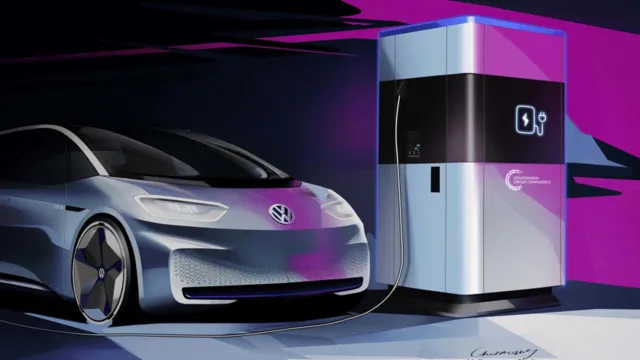
Legal Regulations for Battery Disposal
Battery disposal is a common issue that is often overlooked in our daily lives. Many people typically toss their used batteries in the trash, thinking that it’s the most convenient way to get rid of them. However, traditional battery disposal has several adverse effects on the environment.
The harmful chemicals and toxic materials in batteries can penetrate the soil and groundwater, leading to pollution and contamination. This is why the government has implemented legal regulations for battery disposal. These regulations mandate recycling and reusing of batteries to minimize environmental harm.
The aim is to reduce the amount of waste in landfills and prevent harmful toxins from seeping into the environment. By promoting responsible battery disposal practices, we can help protect the environment and preserve the planet for future generations.
The Promise of Electric Car Battery Recycling
Yes, batteries from electric cars are recyclable. In fact, there is growing promise in the field of electric car battery recycling. As the number of electric vehicles on the road increases, so does the need to properly dispose of used batteries.
However, recycling electric car batteries is not only critical for environmental reasons, but also for the economic benefits it can bring. The metals in these batteries, such as lithium and cobalt, are valuable and can be extracted and reused. This could lead to a more sustainable and circular economy, where these precious resources are not only conserved, but also help to create new products and industries.
In addition, recycling electric car batteries can reduce the demand for new raw materials, which can help to offset the carbon emissions associated with mining and processing these materials. Overall, electric car battery recycling has the potential to play a crucial role in achieving a more sustainable and cleaner future.
Potential Benefits of Recycling Electric Car Batteries
Recycling electric car batteries can have numerous benefits, both for the environment and economy. For one, it reduces waste and conserves natural resources. Lithium-ion batteries are made up of valuable metals such as cobalt and rare earth elements, which can be recovered and reused in the manufacturing process.
This can help reduce the demand for virgin materials, lower greenhouse gas emissions, and minimize the environmental impact of mining and production. Moreover, recycling batteries can create new jobs and stimulate economic growth in the recycling industry. As more and more electric vehicles hit the road, the need for battery recycling will continue to grow.
By developing innovative technologies and infrastructures for battery recycling, we can transform electric car batteries from a potential waste stream to a valuable resource that benefits society, the economy, and the environment.
The Recycling Process: How it Works
Electric car manufacturers have promised a seamless recycling process for their batteries once they reach the end of their life cycle. This process works by first draining the battery of any remaining charge before disassembling it into its individual components, such as cobalt, nickel, and lithium. These materials are then sorted and processed to remove any impurities before being used to create new batteries or other products.
The promise of electric car battery recycling is not only environmentally friendly but also ensures a steady supply of raw materials for future battery production. By harnessing the power of recycling, electric car manufacturers are making strides towards a sustainable and responsible future.
Current Electric Car Battery Recycling Efforts
Recycling electric car batteries has become an increasingly important topic as we strive towards a more sustainable future. Fortunately, current efforts in this area show real promise. With the amount of electric vehicles on the rise, many automakers have made commitments to not only increase the lifespan of batteries but also to recycle them once they reach their end of life.
In fact, many electric car batteries contain valuable materials like lithium, cobalt, and nickel that can be reused in the production of new batteries. By recycling these materials, we can reduce our dependence on mining, conserve resources, and decrease the environmental impact of battery production. As more research and development is put into electric car battery recycling, the future of sustainable transportation looks increasingly bright.
Conclusion
In conclusion, the answer to whether electric car batteries are recyclable is a resounding YES. However, it’s not just a matter of tossing them in a blue bin and calling it a day. The recycling process requires specialized technologies and infrastructure to extract valuable materials like lithium, cobalt, and nickel.
So, the next time you consider upgrading to an electric vehicle, know that when the battery reaches the end of its lifespan, it won’t just be a hunk of toxic waste. Instead, the materials inside can live on in a new form, reducing the demand for virgin minerals and keeping our planet just a little bit greener. It’s time to recharge your sustainability mindset with electric car batteries.
“
The Future of Electric Car Battery Recycling
The future of electric car battery recycling looks promising as technology continues to advance. As the demand for electric cars increases, so does the need for proper disposal of their batteries. Fortunately, recycling methods have improved significantly in recent years, allowing for a much larger percentage of materials to be recovered and reused.
In fact, some estimates suggest that up to 95% of the materials in lithium-ion batteries can be recycled. This not only reduces the amount of waste going to landfills but also helps lower the environmental impact of manufacturing new batteries. One analogy often used is that recycling batteries is similar to mining for gold – the process is complex and requires expertise, but the potential rewards are worth the effort.
As more companies invest in battery recycling technology, we can expect to see a decrease in environmental impact and a shift towards a more sustainable future.
Final Thoughts
As electric cars become increasingly common, the issue of battery waste becomes more pressing. However, electric car battery recycling provides a potential solution to this problem. By retrieving valuable materials like lithium and cobalt from used batteries, recycling can lessen the environmental impact of electric cars while also making them more economically efficient.
Plus, with new developments in battery recycling technology, the process is becoming even more effective. This means that recycling could become a crucial part of the electric car industry, ensuring that the world can continue to benefit from the technology while minimizing its negative impact on the environment. So, the promise of electric car battery recycling is clear: by reducing waste and re-using valuable materials, it offers a sustainable alternative to traditional methods of battery disposal.
FAQs
How are batteries from electric cars recycled?
The recycling process for electric car batteries typically involves discharging, dismantling, sorting, and harvesting the raw materials such as lithium, cobalt, and nickel.
What happens to electric car batteries when they are no longer usable?
When electric car batteries can no longer hold a charge, they are either repurposed for stationary energy storage or recycled.
Can all types of electric car batteries be recycled?
Not all electric car batteries are the same, and some are easier to recycle than others. However, most electric vehicle batteries are designed with recycling in mind, with some manufacturers even offering buyback programs for end-of-life batteries.
Is it economically feasible to recycle electric car batteries?
Yes, it can be economically feasible to recycle electric car batteries due to the valuable metals and materials found within them. However, recycling costs can vary based on the location and volume of batteries being recycled.
